Our certificates
Seaborn aims to always contribute to a better aquaculture welfare and socially responsible seafood, through our third-party certifications. This involves environmentally friendly production, focus on animal welfare, food safety and food production of the highest quality.
Take a look at our certificates bellow, click on any of our certificates to get more information:
 GLOBAL G.A.P.
GLOBAL G.A.P. GLOBAL G.A.P.
GLOBAL G.A.P.Global GAP is standard is an international standard focused on ensuring safe and traceable seafood for consumers, and a responsible production in relation to animal welfare, the environment, and society. Global GAP applies to farmed fish.
Information Global Gap standard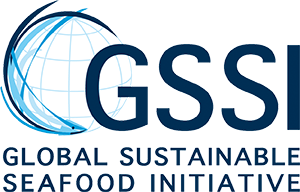 GSSI (Global Sustainable Seafood Initiative)
GSSI (Global Sustainable Seafood Initiative) GSSI (Global Sustainable Seafood Initiative)
GSSI (Global Sustainable Seafood Initiative)The Global Sustainable Seafood Initiative (GSSI) is a global, Public-Private Partnership. GSSI mission is to ensure confidence, working towards more sustainable seafood for everyone. GSSI provides a global multi stakeholder platform for collaboration and knowledge exchange. Seaborn has joined GSSI as a funding partner.
Information GSSI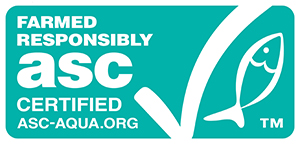 ASC (Aquaculture Stewardship Council)
ASC (Aquaculture Stewardship Council) ASC (Aquaculture Stewardship Council)
ASC (Aquaculture Stewardship Council)ASC is an international standard with strict requirements for production, documentation, sustainability, fish welfare, ethics, environment and society. ASC applies to farmed fish.
Information ASC standard
ASC supplier code
Seaborn ASC CoC 28.08.2025 (PDF, 116KB)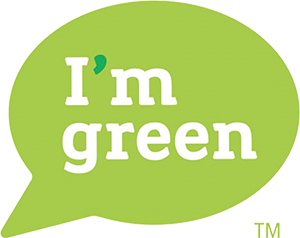 I'm Green
I'm Green I'm Green
I'm GreenI`m Green is the seal used for plastic partly produced from sugarcane, a renewable raw material. For this reason I`m Green captures CO2 from the atmosphere during its production and contributes to reduce the greenhouse gas emissions.
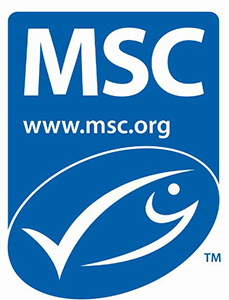 MSC (Marine Stewardship Council)
MSC (Marine Stewardship Council) MSC (Marine Stewardship Council)
MSC (Marine Stewardship Council)MSC is an international standard for wild fish. Fish labelled with MSC guarantees that the fish is traceable back to a sustainable fishery.
Information MSC standard
Seaborn MSC supplier code
Seaborn MSC CoC 28.08.2025 (PDF, 150KB)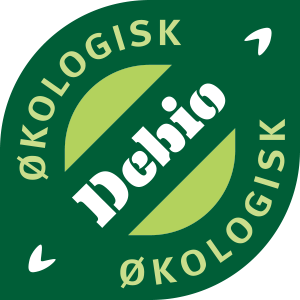 Debio (organic fish)
Debio (organic fish) Debio (organic fish)
Debio (organic fish)All providers of organic products in Norway are certified by Debio. Debio regulates and monitor organic production and regulations in Norway.
Information Debio
Seaborn DEBIO Sertifikat 2022 (PDF, 55KB)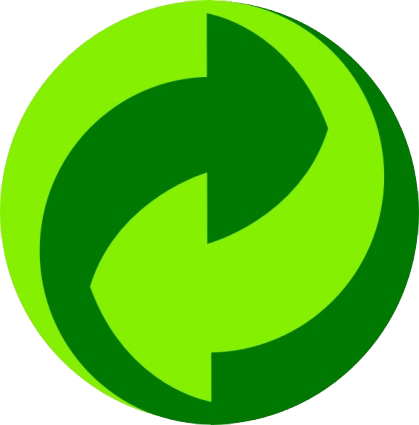 Green Dot Norway
Green Dot Norway Green Dot Norway
Green Dot NorwayGreen Dot Norway is a privately owned non-profit company responsible for financing the recovery and recycling of used packaging on behalf of the industrial sector. All producers are required to be approved by an approved return company. Seaborn cares about the environment and through Green Dot Norway we contribute to develop a more resource efficient and sustainable society.
Information from Green Dot Norway
Seaborn Green Dot Sertificat (PDF, 172KB)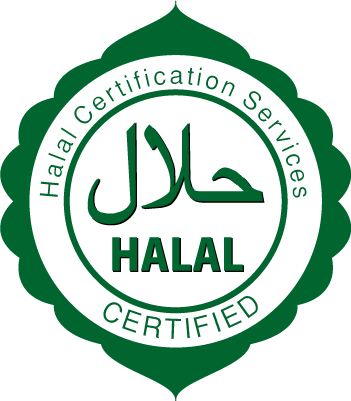 Halal Certified
Halal Certified Halal Certified
Halal CertifiedSeaborn is certified against Halal Guidelines and according to the Islamic Jurisdication. Products (fresh and frozen salmon and trout) produced at specific packing sites comply with HS 09 -001 and is constantly supervised by Halal Certification Services. Halal certificate can be sent upon request.